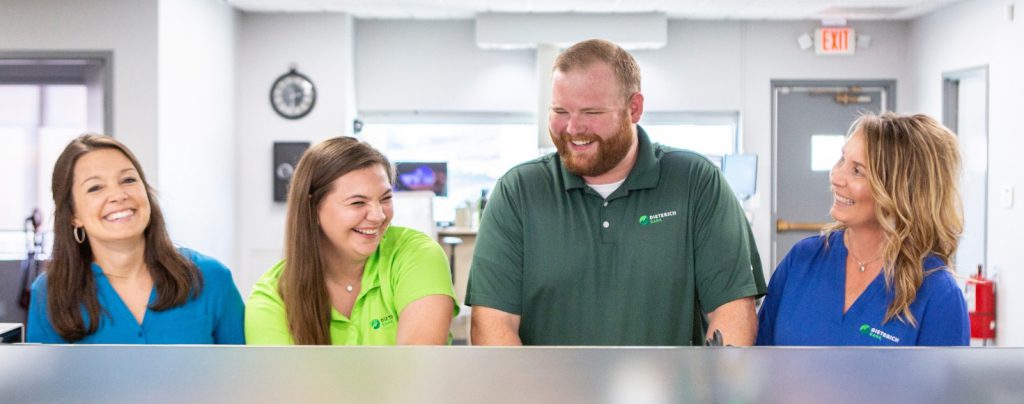Are you new to the world of credit cards or looking to increase your knowledge? Most people have had a credit card at one point in their lives, but knowing how to use credit responsibly doesn’t always come naturally. Wherever you are in your financial journey, you can learn something new from these five categories of credit card knowledge.
How credit cards work
Whenever you use a credit card to make a purchase or pay a bill, this is what happens next:
- Your card issuer puts a hold on your account in the amount of the transaction, decreasing your available credit.
- The transaction is processed and cleared, resulting in payment from your credit card company to the retailer’s bank.
- The completed transaction appears on your monthly statement. As long as you pay in full by the due date, you won’t be charged interest.
- The length of time between your credit card transaction and statement due date is called the grace period.
If you don’t pay the monthly statement balance in full, you’ll start accruing interest. Here’s how that works:
- When interest compounds in your savings or investment account, it’s a good thing. But when it compounds on your credit card statement, it’s not good.
- If you only make the minimum payment due or another payment less than the total, an interest charge gets added to your current balance. The following month, you get charged interest again. The higher your balance, the faster it adds up.
- Compound interest is one of the biggest factors in why it can be so hard to get out of credit card debt once you start carrying a balance.
- This is why you should avoid using credit cards unless you know you can pay off the balance by the monthly due date.
Choosing the right card
Learn about the different types of credit cards so you can choose the right one for your needs:
- Rewards: Earn points or cash back to use for a variety of purposes.
- Balance Transfer: An introductory APR offer can make it easier to transfer a high balance from another card and pay it off sooner.
- Secured Cards: Build or rebuild your credit history. Usually requires collateral through a savings account or Certificate of Deposit (CD).
- Business Cards: Specifically for business-related costs and purchases. Also available with rewards, cash back, or longer introductory APR.
Using a credit card responsibly
As mentioned above, it can be easy to get in trouble with credit card debt if you don’t use your card(s) responsibly. Follow these tips to enjoy the convenience and benefits of credit cards without running into problems:
- Use your credit card only when necessary.
- Or when you know you’ll be able to pay off the balance by the due date.
- To build your credit history, make one small purchase with your card each month and pay it off.
- Check for an annual fee before choosing a credit card. If a card does have one, you want to make sure you’ll get more back (i.e. in rewards) than you pay in the annual fee.
- Always make on-time payments, even if you can only afford the minimum. Otherwise you’ll be charged a late payment fee and possibly ding your credit score.
- Keep your credit utilization ratio (the percentage of your available credit in use at a given moment) below 30%. Higher credit utilization can also lower your credit score.
- Review monthly statements for any fraudulent charges.
- Avoid cash advances, which usually come with higher fees and different terms than regular card use.
- Check your credit report at least once a year through the federally sanctioned, free AnnualCreditReport.com.
Credit card safety tips
Protect your identity, credit history, and wallet with these safety tips:
- Always sign the back of the card as soon as you get it.
- Sign up for text alerts when suspicious activity occurs.
- Choose a strong password for your online account. The best passwords are at least six characters long and use a combination of letters, numbers, and symbols.
- Protect your account number. Beware of “phishing” messages requesting sensitive information and keep in mind that your credit card issuer will never ask for your login credentials or full account number.
- Update your address and contact information when it changes.
- If you store payment info on your smartphone, make sure it’s password-protected and find out how you can freeze your phone in the event it’s lost or stolen.
- If you shop online, make sure the website begins with “https,” which indicates a secure connection.
- Avoid logging into your account or making purchases over public wifi. Open networks are more susceptible to hackers.
- Sign up for multi-factor authentication (using two or more credentials, such as a password and a text message code) when it’s available
Navigating Consumer Protection Laws For Credit Card Users
Since the Truth In Lending Act was passed in 1968, Congress has passed two laws updating the Truth In Lending Act to protect consumers from unfair credit card billing practices, fraud, and other forms of financial abuse. Understanding these laws empowers you to navigate disputes and issues with your credit card company. The first law, enacted in 1974, is the Fair Credit Billing Act (FCBA). It was designed primarily to protect consumers from unfair billing practices.
Key Protections Under the FCBA:
- You have 60 days from when you receive your credit card bill to dispute charges.
- Creditors must respond with prompt written acknowledgment of billing complaints and investigation of billing errors (such as unauthorized charges, incorrect charge dates or amounts, and calculation errors).
- Creditors cannot take actions that adversely affect your credit history until the investigation is finished.
- Credit card payments must be posted to your account right away.
- Overpayments must be refunded or credited to your account.
- If your credit card is lost or stolen, you’re only liable for up to $50 in unauthorized charges.
- Allows consumers to dispute charges for goods or services that are not delivered as agreed.
Then, in 2009, the Credit CARD (Card Accountability Responsibility and Disclosure) Act was passed.
Key Protections Under the Credit CARD Act:
One of the most significant changes ushered in by the CARD Act is the end of marketing to college students. It’s also nearly impossible for young adults under age 21 to get a credit card account without a cosigner or unless they can show sufficient proof of income. Other important protections with the CARD Act include:
- Credit card issuers must alert customers at least 45 days before interest rate hikes.
- You have the right to cancel your credit card account before the new rate goes into effect (usually 14 days after notification).
- Late fees and over-limit fees are limited and restricted.
- Double-cycle billing (when interest charges are based on the average daily balance of the past two billing cycles, effectively forcing consumers to pay interest on charges they have already paid off) is prohibited.
- Consumers must have at least 21 days from when a bill is issued to when it’s paid off. Due dates must fall on the same day every month and payments received before 5:00 pm must be credited to your account the same day.
Learn more about the credit card options at Dieterich Bank!
Live for today; bank for tomorrow! At Dieterich Bank, we offer a full range of personal and business credit card options including rewards and balance transfer. You can review the details and apply online today! Have questions? Visit your nearest Dieterich Bank location in Illinois or call our Customer Care Center. Our knowledgeable employees are always happy to help you identify the best financial solutions to meet your needs. Want to keep learning? Read our article on Financial Advice for a Career Transition.








